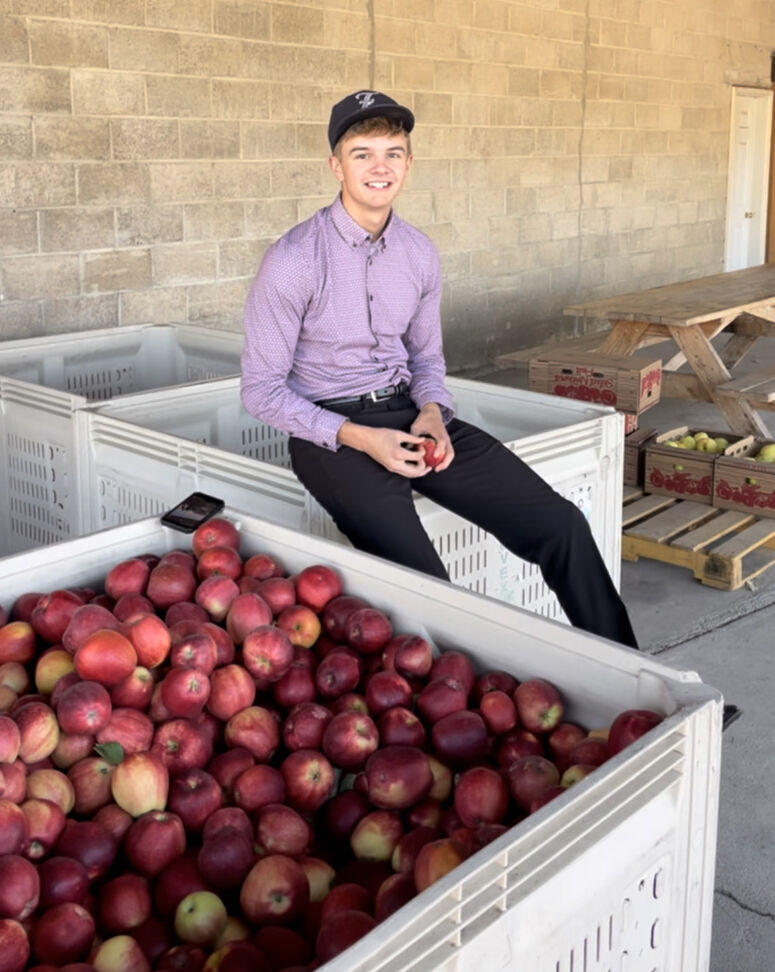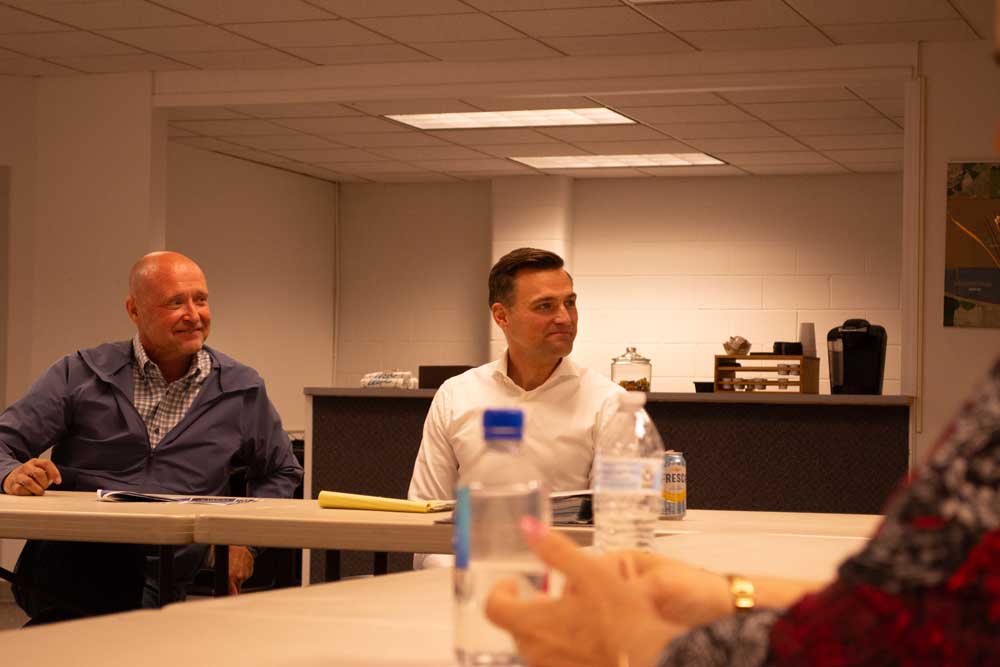Thornton Farms: Next generation joins the family orchard
Published 3:40 am Thursday, April 6, 2023

- Joe Thornton with some of the farm's crop.
TONASKET, Wash. — Kaitlyn Thornton is the fourth generation on her family’s fruit farm in northern Washington.
Trending
Her great-grandfather, Roy Thornton, came to the Tonasket area in the 1920s and started the farm.
“My great-grandparents and their eight children had 100 acres of apples and a few cattle,” Kaitlyn said. “They built a warehouse on their Happy Valley Ranch in the 1940s and it was run by my great-grandparents and their children, including my grandfather.”
Her grandfather, Dell Thornton, was drafted and spent three years in World War II as a medic. He was awarded the bronze star and had a successful military career. When he came back to the U.S, he used the GI bill to become a doctor.
Trending
“He was the only doctor in Republic, Wash., for 20 years, where my father grew up,” she said. “As a doctor, Dell’s escape was to come help on the farm, and often he took my father, Geoff, with him. These trips to the farm as a child instilled a love for farming in my father.”
In the 1980s the warehouse was sold, along with most of the Happy Valley Ranch.
After Geoff and Dianne Thornton married, the young couple started out on 23 acres of river-bottom land.
Buying back the family land piece by piece, and adding to it, they grew the farm to over 440 acres.
“We recently bought back the original warehouse,” Kaitlyn said.
Today the orchard is about 60% pears and 40% apples, which are sold commercially.
“My father prides himself on his incredible pears. I have more interest in the apples, and we are adding more club varieties,” she said. “Club varieties such as SugarBee, and state-exclusive varieties like Cosmic Crisp are what we want to expand.”
Only limited acreage is permitted for those varieties, she said. “This allows for more manageable volume to introduce to markets at a price that’s fair to farmers, and to build a unique brand around these trademarked varieties. It is a great collaboration between marketing/sales desks, warehouses, and farmers.”
The orchard uses a combination of overhead watering, dripline and traditional sprinklers. Water rights are a persistent problem in Okanogan County, so it is important to be as efficient as possible.
“We created a system of certain valve sets with a color code,” Kaitlyn said. “For example, Dad will make an order of ‘turn on purple, close red.’ This reduces confusion when doing irrigation and simplified the training for new hires.”
Kaitlyn, her dad and her younger brother Joseph are the main family members involved now.
“I am at college but come home weekends and during harvest to help,” Kaitlyn said. “For the rest of our operation, we have 12 domestic workers year-round, then use the H-2A program for the rest of the work. During harvest we have around 50 employees.”
Kaitlyn plans to pursue a career involving fruit.
“I love this industry and am blessed to have wonderful mentors. I will most likely be helping my dad run it when I am older. I am almost finished with my degree in marketing from WSU, and will go into the marketing side using my skills in digital media to promote the fruit industry and agriculture.”
At age 16, she started a business of her own called Kait’s Crates, selling 25-pound boxes of apples, pears and apricots. What started as a challenge in high school to see if she could sell 20 boxes of apricots on Facebook has grown to a business.
The first year, she sold more than 400 boxes of fruit, 500 the following year and over 1,000 the next.
“Currently, my younger brother, Joseph, runs this business while I am at college, and I hope to expand it in the future. In the last couple years, I built a presence on social media where I post videos educating the public about fruit production and giving an inside look at the life of an orchardist,” she said. “My goal is to encourage other farmers to post content of their own. I believe this can help close the ever-growing gap between consumers and producers.”









